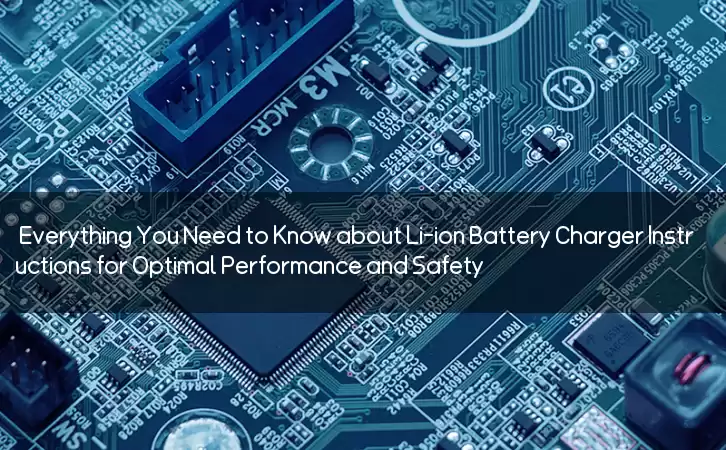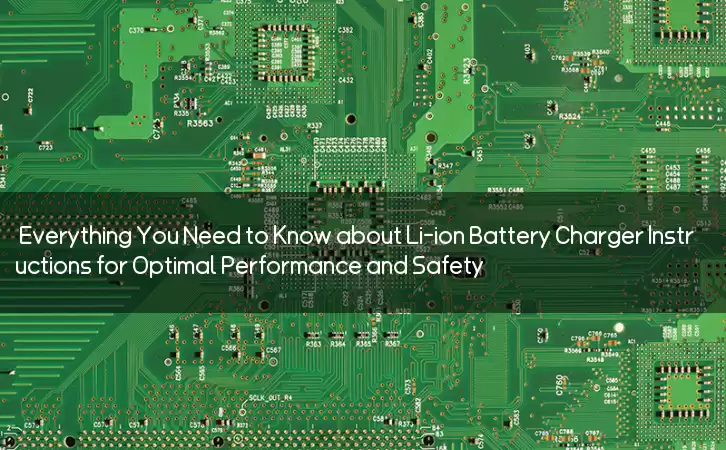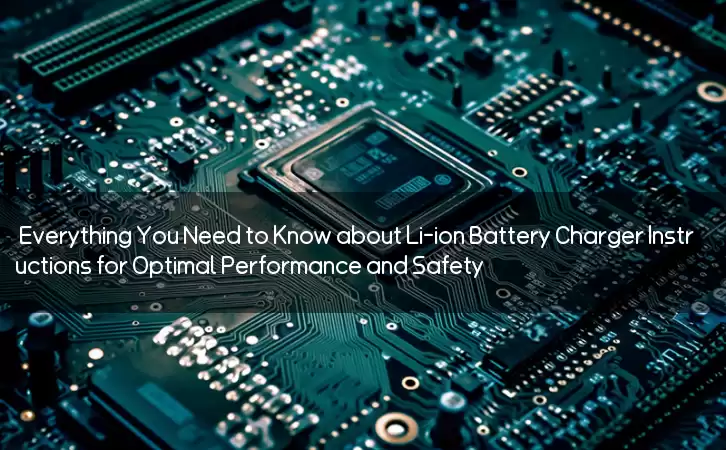Information Center
Everything You Need to Know about Li-ion Battery Charger Instructions for Optimal Performance and Safety
Published:2023-07-22 00:31:26 Author:Green WCND Views:88Li-ion Battery Charger Instructions: Everything You Need to Know

Li-ion batteries have become increasingly popular over the years due to their high energy density, low self-discharge rates, and relatively low maintenance requirements. However, to ensure that your Li-ion battery performs at its best, it is crucial to use the right charger and to follow the recommended charging guidelines.

In this article, we will provide a comprehensive guide to Li-ion battery charger instructions, including safety precautions, charging methods, and maintenance tips.

Safety Precautions:
Before charging your Li-ion battery, it is important to take the following precautions:
1. Use the correct charger: Only use a charger that is designed for Li-ion batteries. Using the incorrect charger can cause permanent damage to the battery and can be a safety hazard.
2. Avoid extreme temperatures: Li-ion batteries should be charged at room temperature (between 20-25°C), and should be kept away from extreme heat or cold.
3. Avoid overcharging: Overcharging can cause the Li-ion battery to overheat or even explode. Always follow the recommended charging time and do not leave the battery charging overnight.
4. Use a surge protector: To avoid electrical surges, use a surge protector when charging your Li-ion battery.
Charging Methods:
There are two main types of Li-ion battery chargers: constant voltage chargers and constant current chargers. Each of these chargers works differently and requires different charging methods.
1. Constant Voltage Charger: This type of charger provides a constant voltage to the battery during the charging process. The voltage is typically set at 4.20V, which is the maximum voltage that a Li-ion battery can handle. Constant voltage chargers are commonly used for small Li-ion batteries and are typically found in portable devices such as smartphones and laptops.
2. Constant Current Charger: This type of charger provides a constant current to the battery during the charging process. The current is typically set at 0.5C or 1C, where C is the battery capacity. Constant current chargers are commonly used for larger Li-ion batteries such as those found in electric vehicles and power tools.
Maintenance Tips:
To ensure that your Li-ion battery performs at its best, it is important to follow these maintenance tips:
1. Use the battery regularly: Li-ion batteries degrade over time, even when not in use. It is recommended to use the battery at least once every three months to ensure it stays active.
2. Store the battery correctly: If you do not plan to use the battery for an extended period of time, store it in a cool, dry place, away from direct sunlight.
3. Avoid deep discharges: Li-ion batteries should never be completely discharged, as this can cause permanent damage to the battery. It is recommended to recharge the battery when it reaches 20-30% capacity.
In conclusion, Li-ion battery charger instructions are essential for ensuring the proper use and maintenance of your Li-ion battery. By following the recommended safety precautions, charging methods, and maintenance tips, you can ensure that your Li-ion battery performs at its best and lasts longer.
Power Adapter Design and Customization Guide for Portable Electric KettlesI. Common Design Types for Portable Electric Kettle Power AdaptersPortable electric ke···
I. Common Design Types of Power Adapters External Independent Type (Most Common) Design: A standalone adapter (e.g., "black brick") connected to the p···
Handheld Vacuum Cleaner Power Adapter Selection GuideIntroductionHandheld vacuum cleaners have become a mainstream tool for household cleaning due to their port···
Drill Power Adapter Selection Guide.drill-container { font-family: Arial, sans-serif; line-height: 1.6; max-width: 800px; margin: 0 auto; padding: 20px; } .dril···





